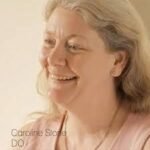Course Details
-
Main SubjectChild Development
-
Course TypePhysical Location
-
DateOctober 21, 2024 12:00 am - October 23, 2024 12:00 am
-
Price450
Provided by the Course Advertiser
Speaker Details
-
ExpertiseChild Development
-
Offerd ByCaroline Stone
Description
Location:
Brook Lodge Farm Camping & Caravan Park, Brook Lodge Farm, Bristol BS40 5RB
21st - 23rd October 2024
3 day in person course covering the journey from intrauterine to independent being. Learn about foetal and infant development, mother-infant bonding, transition physiology and how the infant is beginning to learn about itself and about its world. Understand how important sensory experiencing is.
This introductory level course is to help all osteopaths become better equipped to help infants and older babies with osteopathy. Lots of anatomy and physiology, lots of osteopathic concepts, and integration of neurophysiology, fluids, development, motor- sensory dynamics, posture and movement. The four linked programmes cover everything from intra-uterine through to the older child. It is the first of four linked units, that can be done together, or as stand alone elements.
It is designed for early career osteopaths, or those starting their paediatric journey, but as it is so packed with evidence and clinical insights, it will suit any osteopath, even if experienced in paediatric care. The four programmes follow on from each other, but can be done as stand alone units.
This first programme covers the intra-uterine period, birth and transition dynamics, concepts of physiological stability, and its impact on in infant function, feeding and initial self regulation. It explores the beginnings of and importance of the sensory experiencing between mother and infant, and how this reflects on their mutual communicative journey over time. It covers behavioural states, initial assessment / examination and considers implications for various clinical representations, which are covered in depth in the other units.
Day one includes an introduction to paediatric case analysis and osteopathic principles, day two intrauterine influences, transition, emerging physiology and behavioural states, day three includes initial screening and evaluation. Risks and benefits of oseopthic care are discussed.
The course uses extensive evidence base, introduces new concepts and does not rely on one treatment modality. This course does not teach 'cranial', but instead teaches you how to interact with physiology and the emergent nervous system through applying traditional osteopathic concepts through touch and gentle tissue exploration. Videos of hands on approaches are used. For osteopaths - you will be asked for your osteopathic registration after enrolment. Final year students can apply. Exact venue details after enrolment.
These units form part of the face to face teaching components of the Certificate and Diploma programmes in Paediatric Osteopathy, delivered by Caroline through her postgraduate College, the CNMO. For details of that programme, click link for overview pdf on the main events page, or visit cnmo.co.uk
Show Less




Add a review